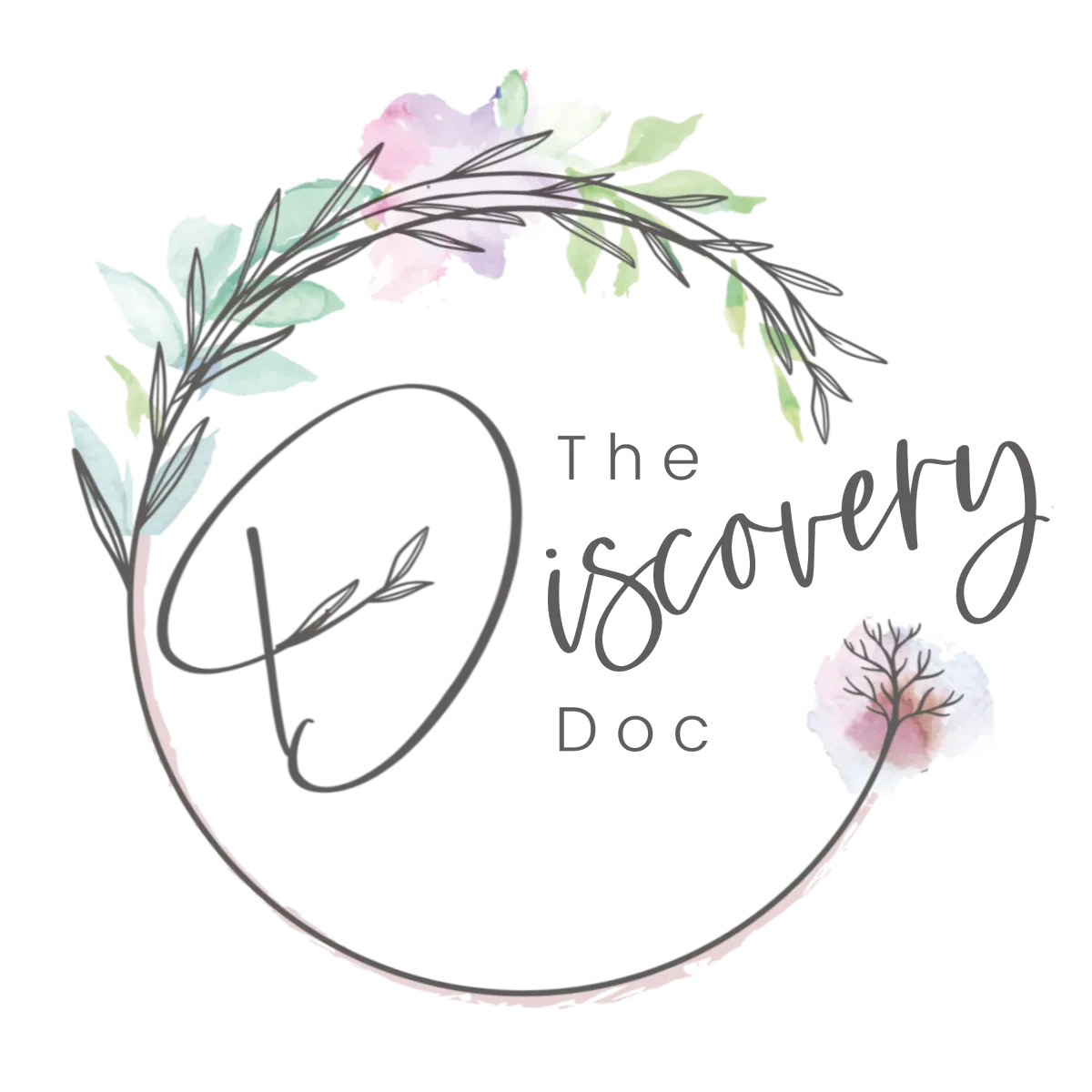Blog

Decoding the Complexity of PCOS:
Decoding the Complexity of PCOS:
Unveiling Hidden Triggers and Personalized Care

Understanding the Multi-Faceted Nature of PCOS
Polycystic Ovary Syndrome (PCOS) is an intricate health condition that affects as many as 1 in 10 women of childbearing age. Despite its commonality, the path to managing PCOS is often marred with confusion and misinformation. "The PCOS Puzzle: Unveiling the Hidden Triggers and Drivers," we explore the less spoken about aspects of PCOS with expertise from Dr. Natalie, the PCOS doc. Together, we shed light on the emotional rollercoaster, misconceptions and provide actionable insights for women battling this condition.
Misdiagnosis and Mismanagement
PCOS is notorious for being labeled as the predominant cause of infertility in women – an overwhelming and distressing message. Dr. Natalie highlights the pitfalls in both the diagnosis and treatment. Not all patients fit the cookie-cutter symptoms, and many are misdiagnosed or mistreated due to outdated health protocols.
The Psychological Toll of Fertility Challenges
The impact of a PCOS diagnosis reaches beyond physical symptoms; it takes a significant toll on mental health. Being informed of potential fertility issues can lead to deep-seated self-doubt and erode self-esteem. Our speakers, Dr. CeCe and Dr. Natalie, emphasized the importance of addressing this emotional burden as an integral part of PCOS management.
Beyond Birth Control: A Real Solution to PCOS
For long, birth control has been handed out as a band-aid for PCOS, but its efficacy as a holistic treatment is a myth. This approach disregards the complexities of the syndrome, particularly how it intertwines with factors like mental health, weight and insulin management, and even thyroid health.
Introducing the PCOS Collective
Dr. Natalie’s dedication to a more comprehensive approach to PCOS has resulted in the creation of the PCOS Collective – a program crafted to help manage blood sugar levels, balance hormones, and provide nutritional guidance. Through her practice, she offers virtual consultations, making her expertise accessible to many.
Holistic Approaches in PCOS Care
Whether it's through the PCOS Collective or one-on-one sessions, the road to wellness begins with education. The episode threw light on the necessity for patients to understand their bodies, especially when navigating PCOS-related symptoms like cravings, weight gain, and insulin resistance.
The Myth-Busting Corner
Our dynamic hosts tackled common PCOS myths head-on, from the normalization of PMS symptoms to the misconceptions surrounding the over and under-representation of the condition in our society.
Environmental Toxins and Stress: Unseen Aggressors
Dr. Natalie underscored the effects that environmental factors have on PCOS. Toxins, whether from our food, water, or air, directly interfere with hormonal functions and can be stored in fat tissue, further complicating PCOS management. Understanding these invisible triggers is a step towards regaining control over health.
Honoring the Unique Rhythm of Women’s Health
Recognizing the innate differences between male and female hormonal pathways is pivotal. As discussed in the podcast, modern life often ignores the natural ebb and flow of hormone cycles in women, a consideration that must be taken into account for effective PCOS treatment.
Understanding PCOS's Diverse Patterns
Dr. Natalie elaborated on the different presentations of PCOS, from adrenal patterns to insulin resistance. She stressed the essential nature of identifying these patterns for proper treatment. Additionally, understanding the misdiagnosis of PCOS when another condition may be present, such as hypothalamic amenorrhea, is crucial for accurate, effective care.
From Pain to Purpose – The Empathetic Journey of PCOS Practitioners
Our speakers shared not just their professional insights but also their personal battles with health issues, lending authenticity to their clinical advice. From dealing with mold illness to feeling out of place in medical school, these experiences shaped their paths towards more compassionate, patient-focused care, turning their pain into purpose. They serve as powerful reminders that at its core, the journey to overcoming PCOS is not only about medical intervention, but about understanding and nurturing the whole self – emotionally, mentally, and physically.
The Discovery Doc is your go-to source for all things health and wellness for your family. Stay tuned for upcoming episodes with expert guests, practical tips, and inspiring stories.
For resources on nutrition, recovery, and balanced living, be sure to explore the links provided and tune into our podcast for ongoing conversations about health, family, and adaptability. Join us next time to continue uncovering the layers of individual well-being and harmony between body and mind.
Discovery Doc Podcast: Where Dr. CeCe and Annah Kate provide insights on holistic health and wellness.
Let's Discover Together!
Decoding the Complexity of PCOS:
Unveiling Hidden Triggers
and
Personalized Care

Understanding the Multi-Faceted Nature of PCOS
Polycystic Ovary Syndrome (PCOS) is an intricate health condition that affects as many as 1 in 10 women of childbearing age. Despite its commonality, the path to managing PCOS is often marred with confusion and misinformation. "The PCOS Puzzle: Unveiling the Hidden Triggers and Drivers," we explore the less spoken about aspects of PCOS with expertise from Dr. Natalie, the PCOS doc. Together, we shed light on the emotional rollercoaster, misconceptions and provide actionable insights for women battling this condition.
Misdiagnosis and Mismanagement
PCOS is notorious for being labeled as the predominant cause of infertility in women – an overwhelming and distressing message. Dr. Natalie highlights the pitfalls in both the diagnosis and treatment. Not all patients fit the cookie-cutter symptoms, and many are misdiagnosed or mistreated due to outdated health protocols.
The Psychological Toll of Fertility Challenges
The impact of a PCOS diagnosis reaches beyond physical symptoms; it takes a significant toll on mental health. Being informed of potential fertility issues can lead to deep-seated self-doubt and erode self-esteem. Our speakers, Dr. CeCe and Dr. Natalie, emphasized the importance of addressing this emotional burden as an integral part of PCOS management.
Beyond Birth Control: A Real Solution to PCOS
For long, birth control has been handed out as a band-aid for PCOS, but its efficacy as a holistic treatment is a myth. This approach disregards the complexities of the syndrome, particularly how it intertwines with factors like mental health, weight and insulin management, and even thyroid health.
Introducing the PCOS Collective
Dr. Natalie’s dedication to a more comprehensive approach to PCOS has resulted in the creation of the PCOS Collective – a program crafted to help manage blood sugar levels, balance hormones, and provide nutritional guidance. Through her practice, she offers virtual consultations, making her expertise accessible to many.
Holistic Approaches in PCOS Care
Whether it's through the PCOS Collective or one-on-one sessions, the road to wellness begins with education. The episode threw light on the necessity for patients to understand their bodies, especially when navigating PCOS-related symptoms like cravings, weight gain, and insulin resistance.
The Myth-Busting Corner
Our dynamic hosts tackled common PCOS myths head-on, from the normalization of PMS symptoms to the misconceptions surrounding the over and under-representation of the condition in our society.
Environmental Toxins and Stress: Unseen Aggressors
Dr. Natalie underscored the effects that environmental factors have on PCOS. Toxins, whether from our food, water, or air, directly interfere with hormonal functions and can be stored in fat tissue, further complicating PCOS management. Understanding these invisible triggers is a step towards regaining control over health.
Honoring the Unique Rhythm of Women’s Health
Recognizing the innate differences between male and female hormonal pathways is pivotal. As discussed in the podcast, modern life often ignores the natural ebb and flow of hormone cycles in women, a consideration that must be taken into account for effective PCOS treatment.
Understanding PCOS's Diverse Patterns
Dr. Natalie elaborated on the different presentations of PCOS, from adrenal patterns to insulin resistance. She stressed the essential nature of identifying these patterns for proper treatment. Additionally, understanding the misdiagnosis of PCOS when another condition may be present, such as hypothalamic amenorrhea, is crucial for accurate, effective care.
From Pain to Purpose – The Empathetic Journey of PCOS Practitioners
Our speakers shared not just their professional insights but also their personal battles with health issues, lending authenticity to their clinical advice. From dealing with mold illness to feeling out of place in medical school, these experiences shaped their paths towards more compassionate, patient-focused care, turning their pain into purpose. They serve as powerful reminders that at its core, the journey to overcoming PCOS is not only about medical intervention, but about understanding and nurturing the whole self – emotionally, mentally, and physically.
The Discovery Doc is your go-to source for all things health and wellness for your family. Stay tuned for upcoming episodes with expert guests, practical tips, and inspiring stories.
For resources on nutrition, recovery, and balanced living, be sure to explore the links provided and tune into our podcast for ongoing conversations about health, family, and adaptability. Join us next time to continue uncovering the layers of individual well-being and harmony between body and mind.
Discovery Doc Podcast: Where Dr. CeCe and Annah Kate provide insights on holistic health and wellness.
Let's Discover Together!
Dr. Natalie's Essential Checklist for Addressing PCOS:
1. Understand the Personalization of PCOS: Recognize that PCOS manifests differently in every individual. Begin by recording your symptoms, noting their patterns and triggers. Awareness is the first step toward personalizing your approach to managing PCOS.
Strategies for Implementation:
- Use a daily journal or a symptom-tracking app to document fluctuations in your health.
- Consult with a healthcare provider specializing in PCOS to analyze your symptom patterns effectively.
2. Prioritize Blood Sugar Balance: Since insulin resistance is a common concern in PCOS, focus on dietary choices that stabilize blood sugar levels. Incorporate low glycemic index foods and consider regular, balanced meals.
Strategies for Implementation:
- Partner with a nutritionist to tailor a meal plan specific to your needs.
- Educate yourself on the glycemic index of foods and meal timing to maintain stable blood sugar.
3. Embrace Holistic Lifestyle Changes: Beyond diet, consider how sleep, stress management, and physical activity can impact PCOS symptoms. Make small but impactful lifestyle adjustments that contribute to your overall well-being.
Strategies for Implementation:
- Develop a consistent sleep schedule and optimize your sleep environment.
- Engage in regular physical activities that you enjoy and stress-reduction practices like yoga and meditation.
4. Explore Supplemental Support: Address nutritional gaps and consider supplements that support PCOS management, such as inositol or omega-3 fatty acids. However, consult with your healthcare provider before starting any supplement regime.
Strategies for Implementation:
- Research and consider supplements known to assist in PCOS.
- Have an open discussion with your healthcare provider about integrating supplements into your health plan.
5. Navigate Healthcare with Informed Advocacy: Equip yourself with knowledge about PCOS to engage confidently with healthcare providers. Seek out professionals who are open to discussing and addressing the hidden triggers of PCOS.
Strategies for Implementation:
- Educate yourself on PCOS through credible sources. Dr. Natalie's resources, for example, can be a good starting point.
- Prepare questions and concerns ahead of healthcare appointments to ensure a comprehensive discussion on your health.
6. Consider Environmental Adjustments: Acknowledge the role of environmental toxins and stressors in hormonal balance. Evaluate and modify your exposure to endocrine disruptors in your personal care and household products.
Strategies for Implementation:
- Conduct a thorough assessment of your living environment, identifying products that may contain harmful chemicals.
- Gradually replace high-risk products with natural or organic alternatives to decrease toxic exposure.
7. Honor Your Body's Natural Rhythms: Accept and adapt to the natural cyclical changes in your hormones. Understand how to sync lifestyle choices with your body's inherent rhythms for optimum health.
Strategies for Implementation:
- Chart your menstrual cycle and note how your body responds at different stages.
- Adjust your activity levels, diet, and stress-reduction techniques to align with your cycle's phases.
Remember, navigating PCOS is a unique journey for each woman. Taking an integrative approach that considers the mind, body, and lifestyle in harmony can help in unraveling the PCOS puzzle.
Stay Connected and Explore Additional Opportunities The Discovery Doc.




